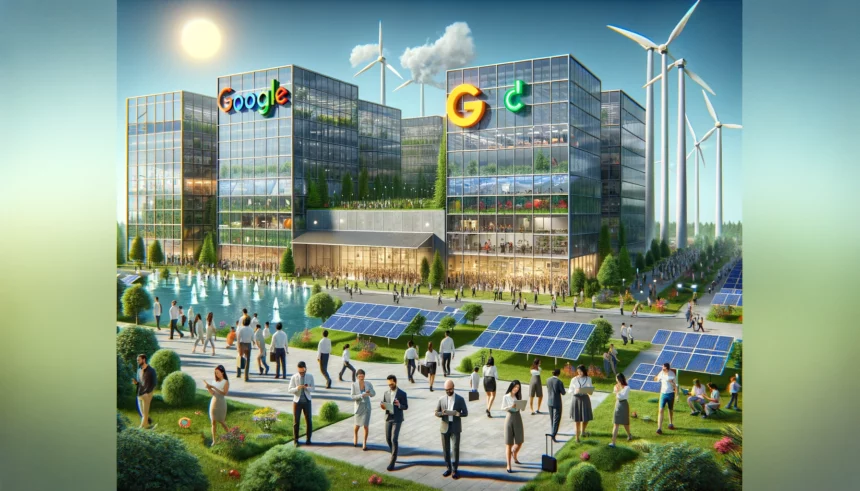A Brief History of Environmental Awareness
Back in 1970, the first Earth Day in the US saw 20 million people taking to the streets to protest against corporate pollution and the depletion of resources. This event sparked the creation of the Environmental Protection Agency (EPA) and the first wave of environmental legislation. Since then, the fight for climate protection has become a global movement.
The Current State of Sustainability
Today, sustainability is a hot topic, and for good reason. We are not learning from our mistakes quickly enough, and we’re not taking sustainability as seriously as we should. Caring for our planet should be a universal concern.
Positive Shifts in Corporate Responsibility
There’s good news, though. Many corporations are stepping up to the plate, especially in the tech industry. Major companies like Google, Apple, and Microsoft are making significant strides in reducing their carbon footprints and inspiring other businesses to follow suit.
Google’s Commitment to Renewable Energy
A Vision for Net-Zero Emissions
Google is at the forefront of sustainability efforts. As Benedict Gomes, Google’s Senior Vice President of Learning and Sustainability, notes in their 2023 Environmental Report, achieving net-zero emissions by 2030 is challenging but feasible with the right strategies.
Key Initiatives
- Eco-Friendly Routing in Maps: Helped prevent over 1.2 million metric tons of carbon emissions.
- Improved Search Results: Provides accurate information on renewable energy options.
- Emission Estimates in Google Flights: Helps users understand their carbon footprint.
- AI-Powered Climate Action: Supports climate action planning and helps communities address extreme weather events proactively.
Microsoft’s Use of AI for Climate Solutions
Ambitious Goals for 2030
Microsoft aims to achieve zero waste across its operations by 2030. They have already reduced single-use plastics in packaging by 29% and are taking a circular approach to materials management.
Leveraging AI
Microsoft uses AI to predict and mitigate the impacts of natural disasters and optimize energy use in data centers. They are committed to responsible AI development to ensure sustainability.
Four Key Initiatives
- Empowering employees with eco-conscious culture.
- Engaging over 400,000 partner organizations.
- Investing in local communities.
- Advocating for policy changes.
Apple’s Sustainable Product Life Cycles
The Mother Nature Initiative
Apple’s 2023 promotional video “Mother Nature” reinforced its commitment to reaching net-zero carbon footprint by 2030. This initiative has already led to significant reductions in emissions and increased the use of recycled materials in their products.
Recycling and Renewable Energy
- Encourages customers to return used devices for recycling.
- Uses recycled aluminum in new products.
- Powers all operations with renewable energy.
Netflix’s Green Content Production
Decarbonizing Film and Series Production
Netflix aims to halve its emissions by 2030 and achieve net-zero emissions from 2022 onwards. They use clean technology in 60% of their productions and promote green practices through their content.
Raising Awareness
- Partners with General Motors to increase the presence of electric vehicles on screen.
- Releases over 200 series, movies, and specials addressing climate change.
Meta’s Efficient Data Centers
Reaching Net-Zero Emissions
Meta achieved net-zero emissions globally in 2020 and now operates on 100% renewable energy. They focus on building efficient data centers to reduce energy and water use.
Key Strategies
- Advanced IT and mechanical design to optimize data center efficiency.
- Using water for evaporative cooling to balance humidity, temperature, and airflow.
Amazon’s Leadership in Renewable Energy
The Climate Pledge
In 2019, Amazon co-founded The Climate Pledge, committing to net-zero carbon by 2040. This initiative has brought together 390 companies to make ambitious climate commitments.
Major Milestones
- Largest corporate purchaser of renewable energy.
- Replenishes 2.4 billion liters of water per year through restoration projects.
- Achieved 90% renewable energy consumption across operations.
The Role of Smaller Companies in Sustainability
Business Case for Sustainability
Adopting sustainable practices is no longer just an ethical choice; it’s a smart financial strategy. By embracing sustainability, businesses can reduce environmental risk, lower production costs, and optimize operational expenses.
How Digital Partners Can Help
- Customized Green Tech Solutions: Enhance operational efficiency and reduce environmental impact.
- Real-Time Data Integration: Measure and monitor environmental impact continuously.
- Predictive AI Models: Anticipate and mitigate environmental risks.
- Data Analytics: Turn raw data into actionable insights.
- Scalable Software Solutions: Grow with your business needs while optimizing emissions tracking and energy use.
Conclusion
The efforts of major corporations like Google, Apple, and Microsoft highlight the importance of sustainability. By learning from these industry leaders and leveraging the expertise of digital partners, smaller companies can make significant strides toward a sustainable future. Together, we can address climate change and build a better world for future generations.
















